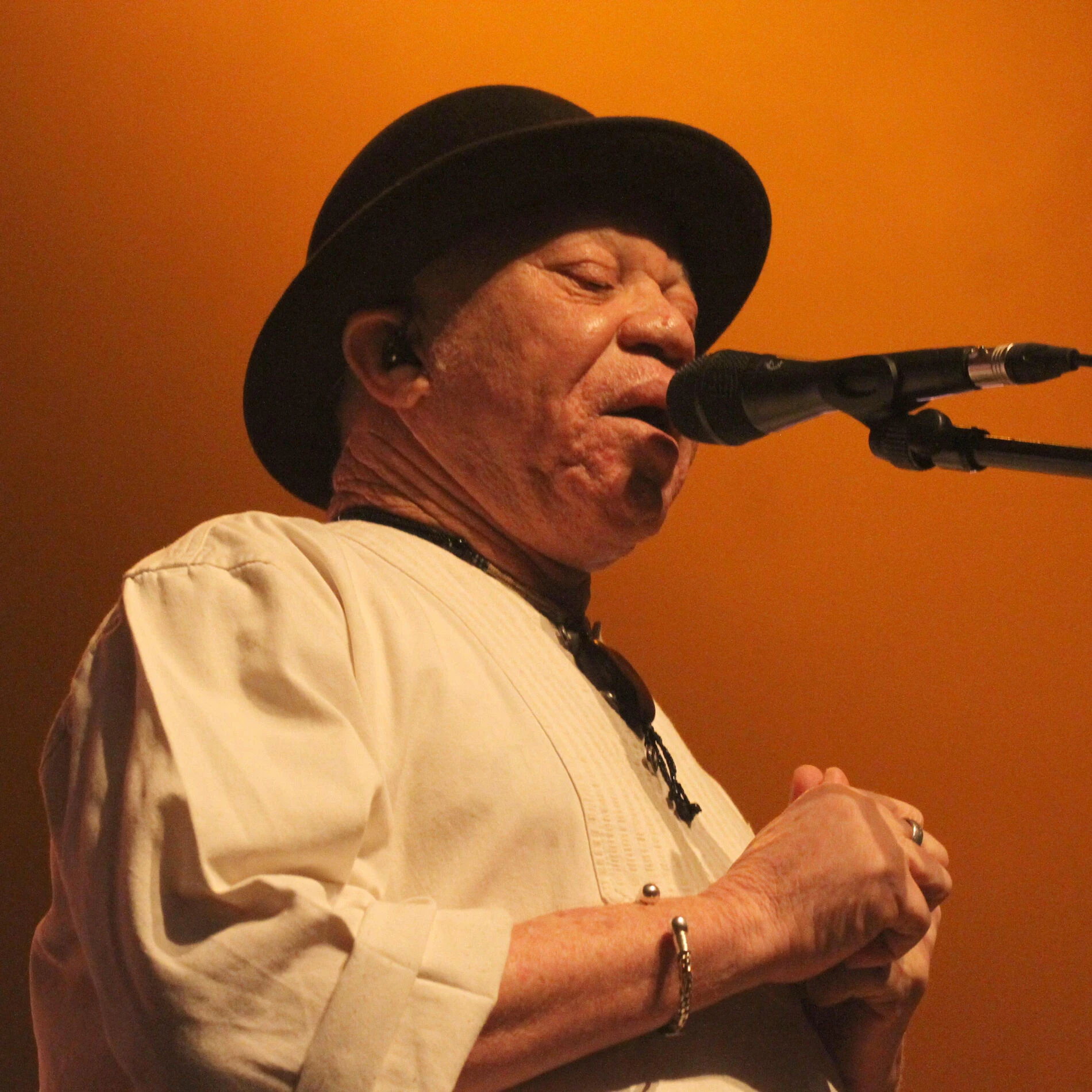Salif Keita, popularly known As Golden Voice of Africa is A Mali born Singer whose fight for the Albinos is laudable. Learn about his musical Career and more.

Born albino in Mali, a land where such a condition was considered cursed, Keita was treated as an outcast by his family and community.
Through music, he was able to recount his ordeal about Albinism and also build a platform to support acceptance, love, and support for Albinos like him.
His works, however, have earned him the name ‘ Golden Voice of Africa', and his perseverance to pursue music despite his family’s denial eventually brought him to the limelight.
Summary
- Salif Keita, a Malian singer-songwriter also known as the "Golden Voice of Africa," overcame a challenging upbringing.
- Born into royalty but with albinism, which led to ostracization, Keita pursued music despite societal disapproval.
- His music blends Malian traditions with international styles, creating a unique Afro-pop sound.
- He founded the Salif Keita Global Foundation to educate the public, support people with albinism, and advocate against discrimination.
Early life of Salif Keita
Salif Keita was born in 1949 in Djoliba and hailed from the Keita royal family in Mali, descendants of the famed Sundiata Keita, founder of the Mali Empire. However, a twist of fate marked him as different - he was born with albinism.
In Mandinka culture, albinism was seen as a bad omen, leading to ostracization by his community despite his noble background.
Keita's albinism not only affected his social standing but also his education.
Despite the disapproval, Keita's passion for music continues. In his teenage years, he decided to break free from tradition and chase his dream. At 18, he left his village for the capital, Bamako, to embark on a musical journey.
In Bamako, Keita began performing in nightclubs, eventually joining the popular government-sponsored band, Rail Band, which really marked the beginning of his musical journey.
Despite the financial challenges, Keita's talent and determination earned him a name and paved the way for his musical success.
Salif Keita’s Fight for Albinism
Salif Keita’s experience while growing up must have triggered the fight and continued support to Albinos. His music often addresses social issues, and songs likely explore the experiences of people with albinism.
La Différence (2009) was one of his great albums, and it was most celebrated because the entire album is dedicated to raising awareness about the struggles faced by the global albino community.
Not only this, he further took a step by founding the Salif Keita Global Foundation in 2005. The organization works to educate the public about albinism, provide support and resources for people with albinism, including sunscreen and healthcare, and advocate for legal protection against violence and discrimination.
Most times, the money he made from his albums is generously targeted to this foundation so as to fully fulfill its aims and objectives without bias.
This combination allows Keita to not just sing about the issue, but also create real change in the lives of people with albinism.
Salif Keita’s Music and Theme
Salif Keita's five musical albums and the deep messages those songs convey to the listeners have been carefully selected here.
- "Yèrèkelen" (1970s): This song, from Keita's early days with the band Les Ambassadeurs, translates to "Women." While not explicitly about Albinism, it speaks to the fight for acceptance and equality, themes that resonate with his activism.
- "An ka wuli" (1979): This song translates to "Don't Cry." It offers comfort and strength, urging those facing hardship to persevere. This message is particularly relevant to people with Albinism who experience discrimination and violence.
- "M'beni" (1980s): This song translates to "My Mother." It's a tribute to Keita's mother, who supported him despite the challenges he faced due to Albinism. The song celebrates the power of maternal love and the importance of family.
- "La Différence" (2009): The title translates to "The Difference." This entire album is dedicated to raising awareness about Albinism and combating its stigma. The song itself is a powerful anthem for acceptance and understanding.
- "Mali Denou" (2010): This song translates to "The Cry of Mali." It features guest vocals by the group Les Ambassadeurs and is a call to action for protecting people with Albinism in Mali. The song highlights the violence they face and the need for societal change.
These are just a few examples of how Salif Keita uses his music to fight for a better future for people with Albinism. His voice continues to inspire and empower.
Discography of Salif Keita
Salif Keita is a renowned Malian singer-songwriter known for his unique voice and blend of traditional Malian music with Western influences.
Part of his selected discography includes:
Studio Albums
- Seydou Bathili (1982)
- Soro (1987)
- Ko-Yan (1989)
- Amen (1991)
- Destiny of a Noble Outcast (1991)
- 69-80 (1994)
- Folon (1995)
- Papa (1999)
- Mama (2000)
- Sosie (2001)
- Moffou (2002)
- Remixes from Moffou (2004)
- M'Bemba (2005)
- The Lost Album (1980) - reissued 2005
- La Différence (2009)
- Talé (2012)
- Un Autre Blanc (2018)
Compilations
- The Mansa of Mali...a Retrospective (1994)
- Rail Band (1996)
- The Best of Salif Keita (2001)
- Salif Keita: The Best of the Early Years (2002)
Major recurring themes, as seen in all of Keita’s work, include:
Identity and Acceptance
A prominent theme is Salif's personal experience with albinism. Songs explore themes of overcoming adversity, defying societal expectations, and celebrating differences. Albums like "La Différence" directly address this.
Mandinka Culture and History
Rooted in his Malian heritage, Keita's music often references Mandinka traditions, folklore, and historical figures. He sings about griots (storytellers), ancient empires, and social values.
Love and Family
Love songs are a staple in Keita's repertoire, expressing tenderness, devotion, and the importance of family bonds. Albums like "Papa" and "Mama" highlight these themes.
Social issues
Keita uses his music to raise awareness about social problems like poverty, political corruption, and injustice. He advocates for peace, unity, and a better future for Africa.
Beliefs
Malian spirituality and religious themes are showcased in some of Keita's songs. He references faith, destiny, and the connection between the physical and spiritual realms.
He has remained a prominent figure in African music, known for his powerful vocals, captivating live performances, and his advocacy for social issues.
Conclusion
Born into Malian nobility yet ostracized for his albinism, Keita defied societal expectations to become a musical legend. His voice not only captivated audiences but also became a weapon against prejudice.
Through his music, he raises awareness and challenges negative stereotypes. The Salif Keita Global Foundation further amplifies his message by providing education, resources, and legal support to those affected by albinism.
Salif Keita's legacy is one of artistic innovation and advocacy, inspiring generations to fight for a more just and equitable world.

